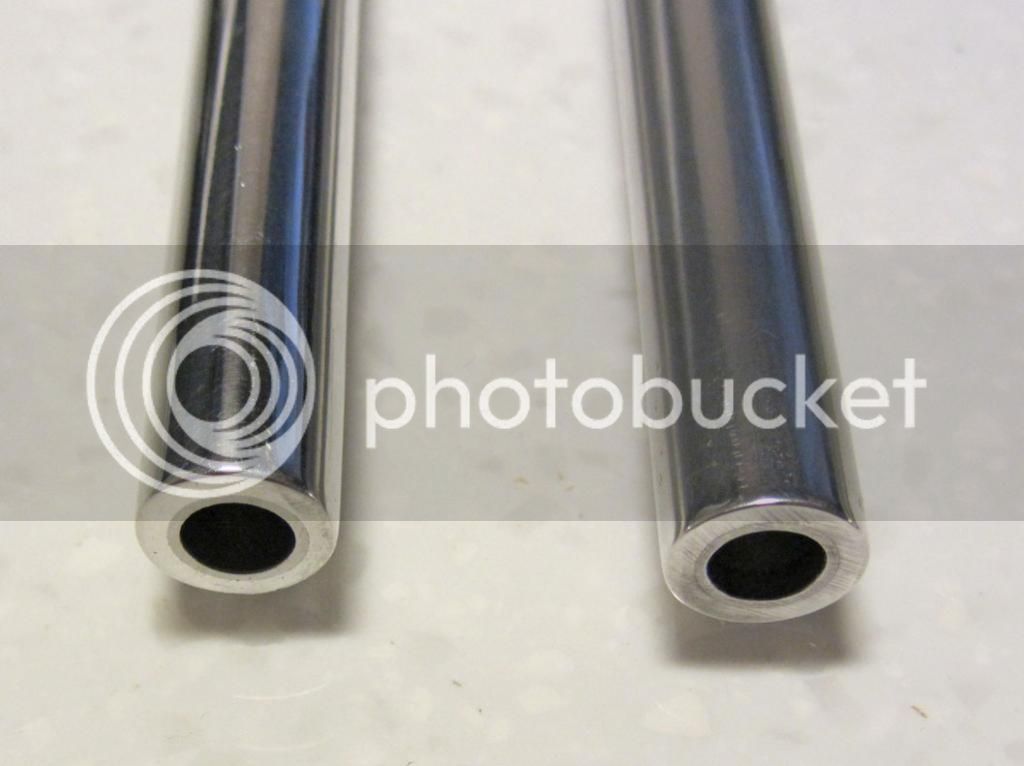TimothyClaypole
Established Member
I'm currently polishing some 10mm tubing, I've been using my Dremel with felt wheels and the green polish that came with a Clarke polishing kit bought with a 6" Bench grinder.
I've been trying the bench grinder a bit but it's just not to the same shine as with the Dremel but the Dremel is painfully slow
The right one is unpolished, I've wet and dried them so far as they get marked up while cutting and sanding them to size.
The middle is the bench polisher and the left the Dremel. The second picture is a better idea of the finish from the Dremel.


This is a longer section:

Should i get a smaller/new wheel and some specific aluminium polish if there is such a thing rather than what I would assume is general duty stuff supplied with the polishing kit?
Ideally I'd like to just finish them with the bench grinder but to the same standard as the Dremel.
I've been trying the bench grinder a bit but it's just not to the same shine as with the Dremel but the Dremel is painfully slow
The right one is unpolished, I've wet and dried them so far as they get marked up while cutting and sanding them to size.
The middle is the bench polisher and the left the Dremel. The second picture is a better idea of the finish from the Dremel.


This is a longer section:

Should i get a smaller/new wheel and some specific aluminium polish if there is such a thing rather than what I would assume is general duty stuff supplied with the polishing kit?
Ideally I'd like to just finish them with the bench grinder but to the same standard as the Dremel.

































